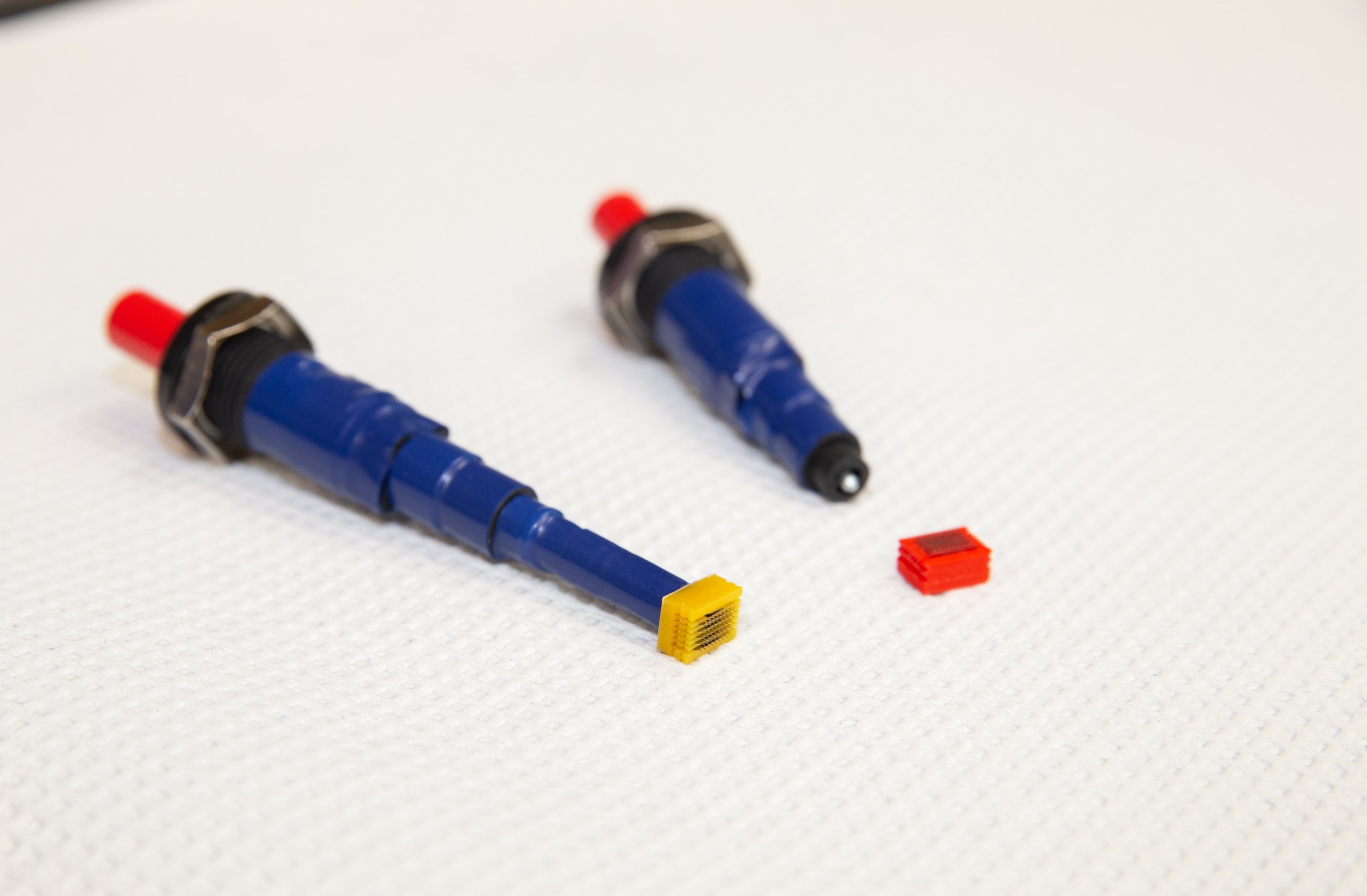ePatch and Electropen
Frugal electroporation for vaccine delivery
A video highlight of the 3-year collaboration between Bhamla and Prausnitz Labs on the ePatch.
Imagine a simple, low-cost, and portable tool that could be used to do field experiments in molecular biology or vaccinate billions across the world, all using the principles of a bbq lighter.
Electroporation is a powerful tool in molecular biology labs but has remained inaccessible for many due to its high costs, lack of portability, and need for power. The same challenges have prevented its usage in vaccine delivery, particularly for DNA and mRNA vaccines.
To harness electroporation and enable wider usage, we developed an ultra-low-cost (<$1), portable (<50g), and battery-free electroporation system called “ElectroPen” to bring the power of synthetic biology to budget-conscious laboratories and field researchers.
By integrating a modified version of this platform with microneedles, we developed “ePatch” to improve the safety, affordability, and scalability of nucleic acid medicines. Our broader focus is on global health and bridging the gap with access to RNA and DNA medicines in lower-and-middle income countries (LMIC)— a key barrier witnessed during the COVID-19 pandemic.
To translate this platform to market and accomplish this goal, Piezo Therapeutics was spun out of the Bhamla and Prausnitz Labs and backed by Open Philanthropy in its recent fundraising round.
These projects have been featured in scientific american.
Major questions
What are the basic principles of electroporation?
Can we use an everyday item to accomplish the same principle but with a different mechanism?
How can we leverage a new ultra-low-cost electroporation platform for vaccine delivery?
What we’ve discovered
Electroporation depends on 2 key parameters: field strength and time constant.
Field strength is the peak voltage divided by the electrode gap and time constant is the decay or length of pulse. Depending on the organism, these parameters vary. For E. coli, this required short, high-voltage pulses applied in inexpensive millifluidic channels. For mammalian systems, we use microneedle electrodes to optimize field-strength.
A BBQ lighter generates short, high voltage pulses using piezoelectricity and meets the constraints for electroporation.
By striking a piezoelectric crystal, a BBQ lighter converts mechanical to electrical energy which is used as a spark to ignite gas or can be used to permeabilize cells. This principle was discovered by the Curie brothers over 150 years ago!
ePatch generates strong immune responses with improved tolerability.
This combination concentrates electric pulses to the epidermis achieving enhanced immunogenicity while keeping pulses away from nerves to improve tolerability.
ePatch delivery improved the safety, efficacy, and tolerability of a COVID-19 DNA vaccine.
ePatch enabled at least 10-fold dose sparing compared to IM and ID delivery (at least 10x improvement in immune responses) and improved protection against a pseudovirus from 20% to 90%.
Excellent tolerance of ePatch in human subjects
We found that electroporation (1-10 electric pulses) via an ePatch cause significantly less pain than that caused by the insertion of a hypodermic needle inside skin.
Read the papers
Tolerability of a piezoelectric microneedle electroporator inhuman subjects (2024).
An ultra-low-cost electroporator with microneedle electrodes (ePatch) for SARS-CoV-2 vaccination. PNAS (2021).
Frugal Science Powered by Curiosity. Industrial & Engineering Chemistry Research (2021).
ElectroPen: An ultralow-cost piezoelectric electroporator. PLOS Biology (2020).







